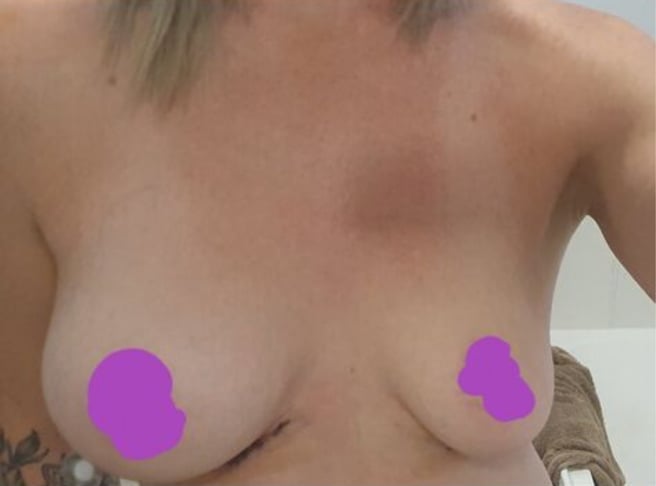
I'd never heard of BIA ALCL, or Breast Implant-Associated Anaplastic Large Cell Lymphoma, until the 24th of October last year.
It's a very rare but very real form of cancer that affects the immune system of women with breast implants.
I was a 27-year-old group fitness instructor, working full-time in medical bookings. I lived a very active, healthy life - until I started noticing my fatigue increasing.
WATCH: Talk to your family about their health history. Post continues below.
Eventually I became so fatigued after teaching fitness classes I felt I needed a nap. I was also experiencing really bad brain fog.
I didn't know what was wrong, and I put it down to a busy lifestyle and being tired. But I decided to have an ultrasound on my chest as I had been getting shortness of breath and chest tightness during exercising, and also sporadically while resting or sleeping.
I wasn't sure if this was childhood asthma returning or something else, but I honestly wasn't expecting what they found.



Top Comments